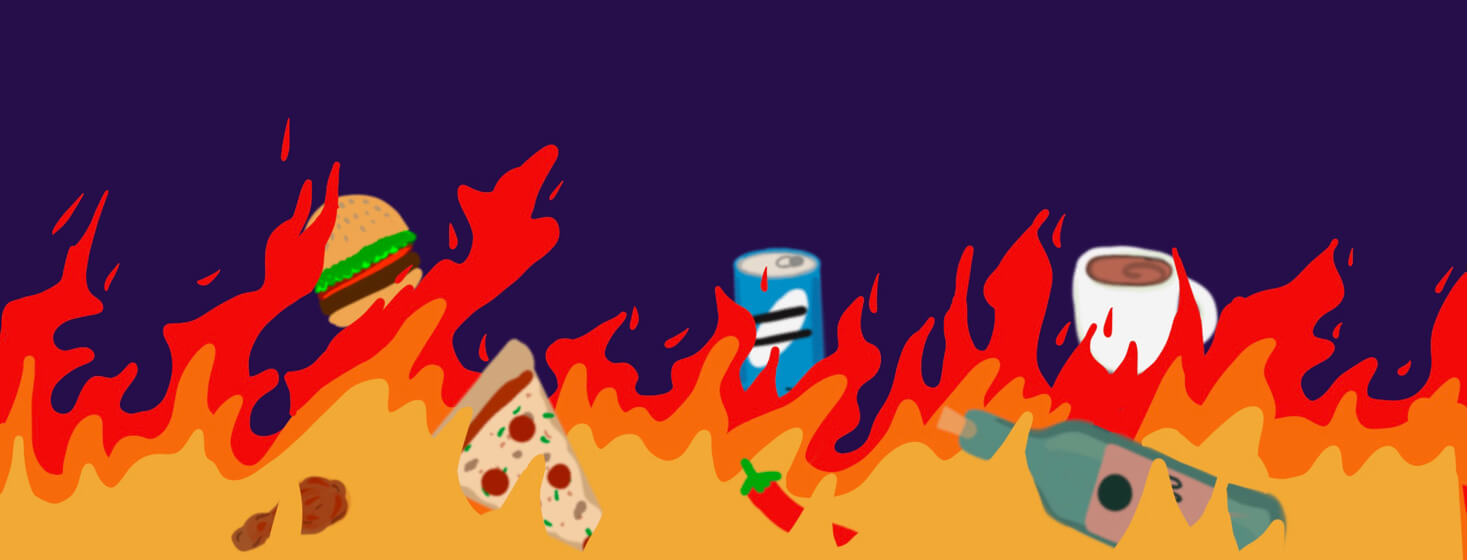IBS Triggers That Are Not FODMAPs, Part 1
Have you ever followed the low FODMAP diet, only to still struggle with digestive symptoms? If you are living with irritable bowel syndrome (IBS), you have likely experienced a flare-up of symptoms at some point. While following the low FODMAP diet can help manage symptoms of IBS, there are many other things that can trigger a flare-up.
In fact, one of the main characteristics of IBS is that symptoms and triggers vary from person to person or even day-to-day in the same person! Here we’ll look at non-FODMAP foods that can trigger a flare-up, and in a future post, we’ll explore IBS triggers that are not foods. This article is based on my experiences working with patients with IBS. Please talk to your healthcare provider about any new symptoms or treatment options.
Alcohol
Alcohol can irritate the gut lining, which can lead to both diarrhea and constipation. If my patients are having symptoms but aren’t sure whether alcohol is the trigger, I often get them to eliminate it for a few days to see if their symptoms improve. If their symptoms do improve, we discuss potentially limiting or eliminating alcohol as a long-term strategy to manage their IBS.1
Caffeine
Just like alcohol, caffeine can irritate the gut lining and speed up how quickly things move through the digestive tract. For people with diarrhea-predominant IBS, this can worsen symptoms.1
For my patients with IBS-D, I often have them try a caffeine elimination to see if their symptoms improve (which they often do). Interestingly, for people with constipation-predominant IBS, caffeine may actually help improve symptoms. It’s important to talk with your healthcare provider before using caffeine as a gut stimulant, as excessive caffeine can be harmful to our health.
Spicy food
Capsaicin is a naturally occurring compound found in spicy foods, especially those made with chilies or chili powder. Capsaicin can irritate the gut lining and speed up digestion, which can worsen diarrhea for some people. It’s also thought that capsaicin may increase abdominal pain in some people.1,2
For my patients experiencing diarrhea and abdominal pain while following a low FODMAP diet, we often look to spicy foods as the hidden cause of their symptoms.
Fatty food
Fatty or greasy food can worsen both diarrhea and constipation. Eating large amounts of fat can slow down digestion. Slower bowels can make constipation worse, as slower digestion gives the intestines more time to reabsorb water from stool.1
In contrast, fatty foods may also cause diarrhea. This is because some people with IBS may have trouble absorbing bile acids. Since high fat meals causes the release of bile acids from the gallbladder, they may increase diarrhea in people who have trouble reabsorbing bile acids. If bile acids aren’t reabsorbed, they can irritate the colon, leading to cramping and diarrhea.3
Carbonated beverages
Visceral hypersensitivity, or the inappropriate perception of pain associated with digestion, is a key component of IBS. The gas in carbonated beverages can increase the amount of pressure in the gut, which can worsen this feeling of visceral hypersensitivity. This includes all carbonated beverages, including pop, sparkling water, and beer.4
For my patients struggling with visceral hypersensitivity, one strategy we use is swapping carbonated beverages for non-carbonated beverages to see if this makes a difference in their symptoms of pain and bloating.
Takeaway
If you’re having an IBS flare-up, it’s important to look beyond FODMAPs to identify the causes. Once you have identified your non-FODMAP triggers, you can develop a road map for getting your symptoms back on track. And check out my post detailing some non-food IBS triggers – some of them may surprise you!

Join the conversation